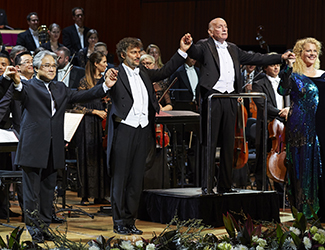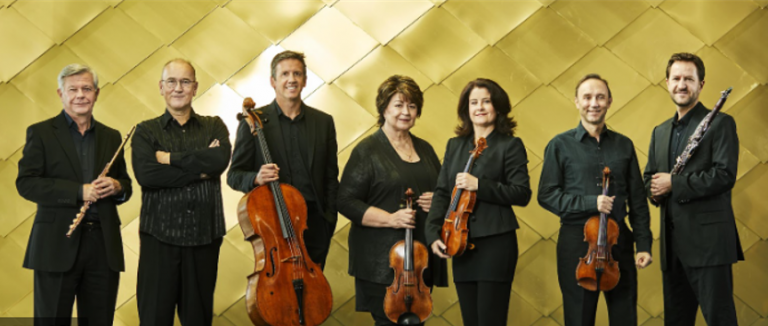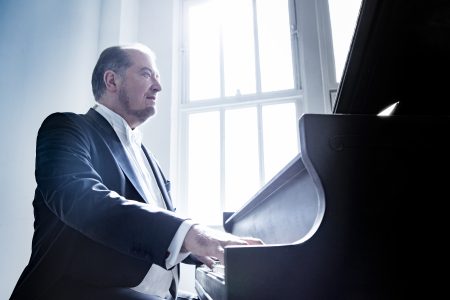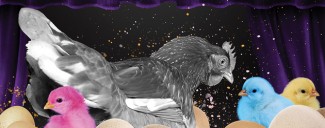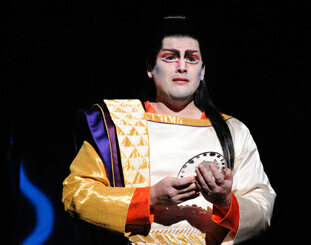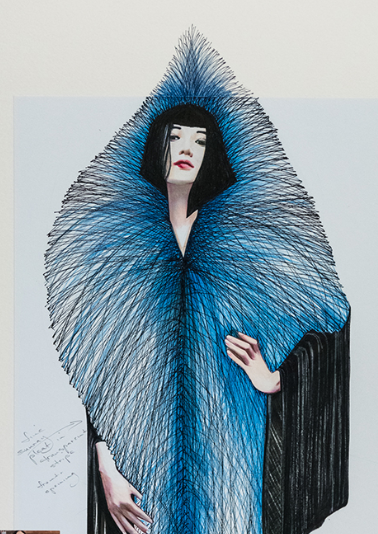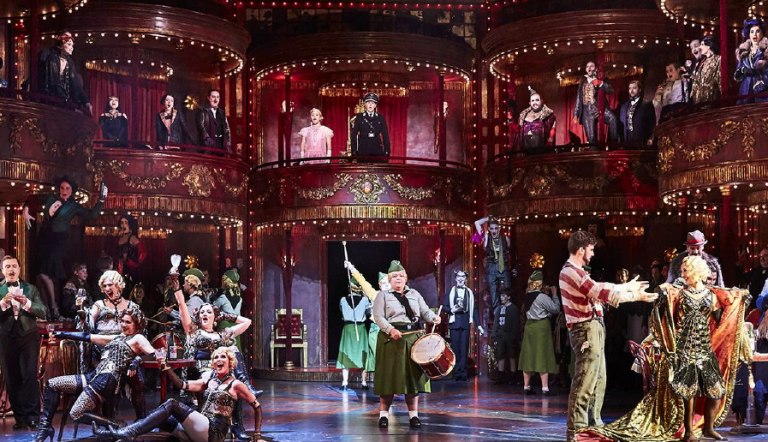Opera In Concert Review: Parsifal/ Opera Australia
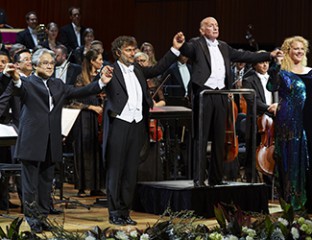
Parsifal in Concert
Opera Australia
Concert Hall, Sydney Opera House
9 August 2017
Written by Deen Hamaker
Parsifal is a work that is revered for its Wagnerian splendour and epic scale, but its magnitude makes it a rarity in many opera houses. Adding to this is the difficulty of staging this intensely spiritual piece in a modern secular world.
Beyond its staging, performing Parsifal is no small task – one that many opera companies shy away from. Prior to this, The Australian Opera and Opera Australia have never performed the work and it has only been fully staged in Australia once in 2001 by the State Opera of South Australia. For all these reasons, it was indeed a joy that Opera Australia choose Parsifal as one of the works to present in concert while the Joan Sutherland Theatre is being refurbished. Assembling an excellent cast of stunning singers, it was eagerly anticipated and with a few caveats, it was a resounding success.
Even among Richard Wagner’s iconoclastic works, Parsifal stands out as one of his most original creations. Taking Wolfram von Eschenbach’s medieval legend Parzival as its base, Wagner went created a work which superficially tells the legend of the Knights of the Holy Grail, but which at a more profound level, is an elaborate exploration of the themes of compassion, salvation and corruption of the soul. Parsifal reads as a simple story about a foolish boy who redeems an order of knights, but there is more to the tale than meets the eye. The characters are complex with the vainglorious Amfortas, Grail King, cursed to suffer endlessly from the wound that came from his own hubris, the evil Klingsor, who in his own zealous search for purity, castigated himself and fell into dark sorcery and corruption, and of course Kundry, one of Wagner’s most complex characters, a woman who is doomed to live forever, unable to die for having laughed at Christ on the cross. Each of these tormented souls is searching for redemption and a way forward with their own form of release. Amfortas and Kundry seek death and peace while Klingsor seeks the Grail. Whilst the world of Parsifal is, at first glance, an intensely Christian one, deeper examination reveals other influences underneath. Interestingly, Jesus Christ is never explicitly mentioned in the libretto, only referred to as ‘our saviour’, and while the scenes of the holy grail resemble the act of the Catholic mass, there are actually radical differences.
Wagner created Parsifal as a Bühnenweihfestspiel , which translates as a ‘consecration festival play’. Composed for his own theatre at Bayreuth, the work premiered there in 1882. Wagner, and his descendants after his death, tried to keep Parsifal exclusively at Bayreuth forbidding full performances of the work anywhere else. There were a few concerts outside of Bayreuth with the approval of Wagner’s family and unauthorised performances outside of Bayreuth at the Metropolitan Opera in New York in 1903, followed by Amsterdam and Buenos Aires. The rest of the world would have to wait till the exclusivity ended on 1 January 1914. Several theatres began their performances at midnight on 31 December – such was the excitement surrounding the opera. Over 50 opera houses performed Parsifal in the first six months of 1914.
Today, Parsifal is less of a rarity but continues to be an extremely difficult opera to stage and perform successfully. It is without question a long opera. Without intervals, Pierre Boulez conducted it in 3hours 40minutes, Arturo Toscanini took 4hours 42mins. Here in Sydney, conductor Pinchas Steinberg kept good pace, though on the slower side, around 4hours 15minutes. He deftly led the Opera Australia Orchestra throughout the epic work, intensely sensitive to the needs of the singers. He ably manoeuvred the orchestra through the gossamer shimmer of the Prelude and Transformation music of Act I and the thundering climax of the end of Act II. The final moments of Act III were beautifully rendered. The Opera Australia Orchestra played magnificently throughout and delivered a beautiful rendition of the score.
The announcement that Jonas Kaufmann was returning to Sydney to sing Parsifal generated considerable excitement. One of the biggest stars in the opera sphere, he certainly did not disappoint. Parsifal is a difficult role and requires the singer to move smoothly from youthful lout to ardent lover and then to holy king. Kaufmann handled these transitions deftly. He portrayed every nuance of the character with his use of the text and by deftly shaping the sound of his voice. His portrayal was elegant and very carefully considered. Blossoming after Kundry’s kiss in Act II, Parsifal’s aria Amfortas, Die Wunde was a sensational display of his bright powerful top which did not let up for the rest of the evening.
Korean bass Kwangchul Youn is the go-to bass for many of the top opera houses around the world and his performance here showed why. As Gurnemanz, the aged grail knight, he was indefatigable through the long monologue sections of Act I and was magisterial in his section of Act III. It was a stunning performance. From his very first note, he had the audience in his thrall. It is one of the most beautiful bass voices I have heard. Warwick Fyfe as the evil sorcerer Klingsor was simply sensational. He thundered the text, expressing the seething rage underlying Klingsor’s malevolence. His articulation of Wagner’s text was exemplary. Having recently excelled as Alberich in Opera Australia’s Ring Cycle, Fyfe has shown himself to be one of the finest Wagnerian singers Australia has produced.
As the wounded king Amfortas, Michael Honeyman was very good. He does not have the lush luxuriant baritone sound usually associated with the role, but he did embody the pain and suffering of the role admirably. Unfortunately, Michelle DeYoung as Kundry was a disappointment. With this most complex of characters, there are so many ways to approach the role – as seductress, fierce woman, lost soul looking for redemption – unfortunately Ms DeYoung did little to embody the complexities below the role’s surface. She had to exert considerable effort to reach the high lying sections of the role and does not have the lush voluptuousness needed to carry the seduction duet with Parsifal at the end of Act II.
In the myriad smaller roles, the cast of Opera Australia principals were uniformly excellent. Special mention goes to the Flower Maidens of Act II, Stacey Alleaume, Anna Dowsley, Jane Ede, Julie Lea Goodwin, Eva Kong and Dominica Matthews. This was the finest Flower Maiden ensemble I have heard. Balanced and beautifully timed, they were intoxicating in their attempted seduction of Parsifal. Anna Dowsley backed up as the Alto Soloist and Second Esquire and was magnificent throughout. Her debut as Lucretia in Britten’s Rape of Lucretia next week for Sydney Chamber Opera is justly one of the most eagerly anticipated events on the Sydney opera calendar. Eva Kong also did double duty as the First Esquire and was wonderful.
The gentlemen were just as terrific. David Parkin as the aged Titurel used his booming ample bass to project over the chorus and orchestra into the hall. He excelled in his portrayal of the once great king. Graeme Macfarlane, Simon Kim as the Esquires and Dean Bassett and Alexander Hargreaves as the Knights were all superb. The Opera Australia Chorus and Children’s Chorus were marvellous. Week in week out during the opera season the chorus perform in numerous performances and are often the unsung heroes of the company. Here given the opportunity to sing Wagner’s extraordinary music, they showed their class and style, clearly projecting the text as both the Knights of the Grail and the Flowers of Klingsor’s magical garden.
There are two more performances of Opera Australia’s concerts of Parsifal on Saturday 12 August at 2pm and Monday 13 August at 6pm. With a largely superb cast, excellent orchestra and outstanding chorus, do not miss your opportunity. There are very few tickets left so get them while you can. Be prepared for the long performance time but know that you will be beguiled and feel transformed by the experience by the end.
Deen Hamaker for SoundsLikeSydney©
Deen Hamaker is a passionate opera aficionado and commentator. Introduced to theatre, opera and classical music at a very young age, he has acted in and directed several theatre productions, both in Australia and overseas. Deen lived in Japan for several years and studied the performing arts of Asia. Deen’s particular passion is opera, particularly the Russian, French and Modern repertoire. Deen was a contributing author for “Great, Grand and Famous Opera Houses”, 2012. Fluent in Japanese, Deen holds a Bachelor of Arts in Japanese from Griffith University and currently lives in Sydney.

